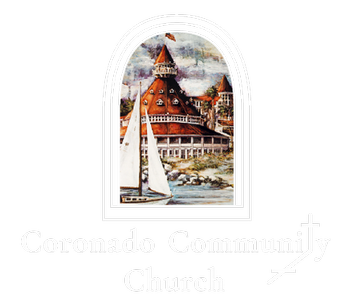Psalm 139: 1-18
A sermon by Pastor Eric Smith
July 23, 2023
A sermon by Pastor Eric Smith
July 23, 2023
We belong with God…
A message based on Psalm 139 is a good opportunity to talk a bit about the journey of devotion in our lives. Psalm 139 is one of the great devotional pieces of the Bible.
Let’s start with the Bible itself.
I often hear folks say that they are going to spend more time in the Bible. Behind the statement is a desire for a deeper spirituality. I think we all feel that at one time or another, some more than others, and saying I want to spend more time in the Bible is a way of expressing it.
For my part, I would make this resolve and dive in. Which would work for a while, and then my enthusiasm would wane. Then I’d be hard on myself about it, as though I had somehow failed God. I suspect many of you have had a similar experience.
Through the years I have learned (at least) a couple of things: first, that the Bible is not a strictly devotional book.
The Bible does have some excellent devotional material. Some of the Psalms, lots of Jesus’ teaching, some of Paul’s chapters. Other places, too. I really like James. But overall the devotional portions of the Bible are not the majority. The Bible is an anthology of the stories of wisdom and people’s faith in God. It has the spiritual history of the ancient people of Israel. So when someone launches into reading the Bible from beginning to end, there are some long stretches to wonder what is helpful to my soul in this stuff? Think Leviticus.
The second thing to be learned is that most of us have a spirituality disorder. I think of it as SADD… spiritual attention deficit disorder. It’s just difficult for us to stay focused. Exploring spirituality takes time and our attention just doesn’t hold that long.
Reading the Bible is a good thing to do. People of faith have done it for a long time. It is not a simple book. It is not easily apprehended. It has been passed to us through centuries from faraway lands and people. It contains epochs of history, world views, and evolving ideas about God.
You know the joke about reading the Bible?
One day a devout soul was looking for what God had to say to him. So he took his Bible and flipped the pages, thrust his finger forward and read what he pointed to. The verse was…And Judas went and hanged himself.
He thought… that can’t be right… so he did it again. Thrust his finger looked and read… go thou and do likewise.
Now we’ll move on.
Psalm 139 is one of the great pieces of devotional literature. My favorite Psalm. Here is the start….
O Lord, you have searched me and known me.
You know when I sit down and when I rise up; you discern my thoughts from far away.
You search out my path and my lying down, and are acquainted with all my ways.
We are known by God.
Our son Christopher is now 43 years old. A great moment in his and my relationship came out of a conversation we had when he was 16. He had become friends with a counselor at his high school, an older man with wisdom that suited him well for the guidance he could offer high school students. Chris told me about a conversation they had in his office… the counselor was probing… he asked Chris who is it that really knows you?
Chris answered, my dad does. You bet I dined out on that one.
But that was a moment in time: soon after Christopher left for college. We have not lived geographically close together since then. Today he’s married with two kids and lives in France. No problem (except we don’t see them often enough)… entirely appropriate… you want your kids to become independent.
That 18 year old is a grown man. And who is it now that really knows him? …who is it that really knows any of us?
There is a cemetery in the Channel Islands between Britain and Europe dedicated to the unknown dead of World War II, where the remains of soldiers have been interred. No one knows exactly who is buried there. No one knew what birth date or death date to inscribe on the headstones. There was no attempt to say that they were British or Canadian (for example), or that they served in a particular regiment.
No one knows the names. Except God. The One who has seen the otherwise unknown sacrifices and sufferings of our world. Across each gravestone are inscribed just the words, “Known unto God.”
Who knows you? A family member… a friend? … anyone?
God does.
Consider this… When you feel as though no one else takes note of you — when you feel that no one else has the time to bother — God is. However you want to think of God, as a personality or the Spirit of the Universe or anything in between… you are endlessly fascinating and interesting to God. God doesn’t tire of you.
God knows you. This is God whose eye is on the sparrow. This is God who keeps your tears in a bottle. This is God who took out divine knitting needles and knitted you together, stitch by stitch, in your mother’s womb. This is God who tallies the number of every hair on your head — admittedly easier with some of us than others, but still … It’s all metaphors… eye on the sparros, knitting you together, numbering the hairs on your head… but not the knowing part.
This is God for whom there are no anonymous sheep,
to whom nobody is a write-off,
for whom no one is lost in the crowd.
This is God who tracks the individuals:
one lost sheep,
one missing coin,
one person bind and then seeing.
The experience of the pandemic helped moderate our spiritual ADD. We had a long time and good reasons to turn inward and ponder our lives. More time than our undisciplined, easily distracted SADD nature would otherwise have sought. It was hard on us, but there have been benefits.
One benefit is that we have a better appreciation of our need for spirituality.
Augustine, Bishop of Hippo, captured this feeling nearly 1700 years ago. Augustine was the most significant thinker of the early church.
He was wild in his youth: fathered a child when he was a teenager….converted to another religion…. traveled to Rome, where he taught philosophy, then he accepted an invitation to teach in Milan. The years in Milan were important for his spirituality because he was unsatisfied… he was drawn by the faith of a Bishop named Ambrose. Then he struggled for a couple more years… but in one of the great conversions of Christendom, Augustine embraced the faith.
He was baptized on Easter in the year, 387. Four years later, while he was visiting in Africa, he was chosen to be a Christian priest there. For the rest of his life he remained in Hippo – a North African city, where he became bishop in the year 395.
Augustine understood the need for spiritual sustenance. He put it into words when he wrote,
“Thou hast made us for thyself, O Lord,
and our heart is restless until it finds its rest in thee.”
Throughout history people have searched for God. The ancients thought God lived on the mountaintop. Moses went up to the mountaintop. Then they thought, God lives in the heavens, (which was in the clouds) and Jesus went up for the transfiguration. Then the heavens (plural), became heaven (singular), and the where of it was just… up. God was up there.
Unless we learn otherwise, our idea of where God is in relation to us is … somewhere else. So people search… we go on journeys and take pilgrimages seeking to find God.
But the OT prophets had a revelation, they said Emmanuel, God is with us. God is not somewhere else… God is right here. With us… in us… in you. In this very room.
Rev. Robert Raines is a renowned preacher and spiritual leader… he wrote a poem based upon Psalm 139… he wrote
“I’m a child playing hide and seek, waiting for someone to find me and say, ‘you’re it!’ And you did… Lord. You found me hiding in the silliest, saddest places; behind old grudges, under tons of disappointment, tangled up in guilt, smothered by my success, choking on sobs of pain that nobody hears.
You found me Lord, You whispered my name. You said, ‘You’re it,’ and I believe you mean it. And now maybe the silent tears can roll out of my throat and get wet on my cheeks, and now maybe I don’t have to play hide and seek anymore.”
Let me leave you with this…
During World War II there was a resistance movement in Germany. Dietrich Bonhoeffer was a Lutheran theologian, and pastor. He was he was arrested and imprisoned for his resistance against the Nazis. Ultimately executed.
While in prison he wrote a poem called “Who Am I?” in which he meditated upon the difference between what others said about him during his time in prison and what he felt about himself.
Others saw him as a cheerful tower of strength and faith amid hardship — but on the inside he felt restless and yearning and sick, like a tiny bird in its cage, barely alive.
“Who am I?” he asked. “This man or that other?
Am I then this man today and tomorrow another?
Am I both all at once?
An imposter to others,
but to me little more than a whining, despicable weakling?
They mock me, these lonely questions of mine.”
Then Bonhoeffer concluded the poem like this:
“Whoever I am, you know me, O God.
You know I am yours.”




